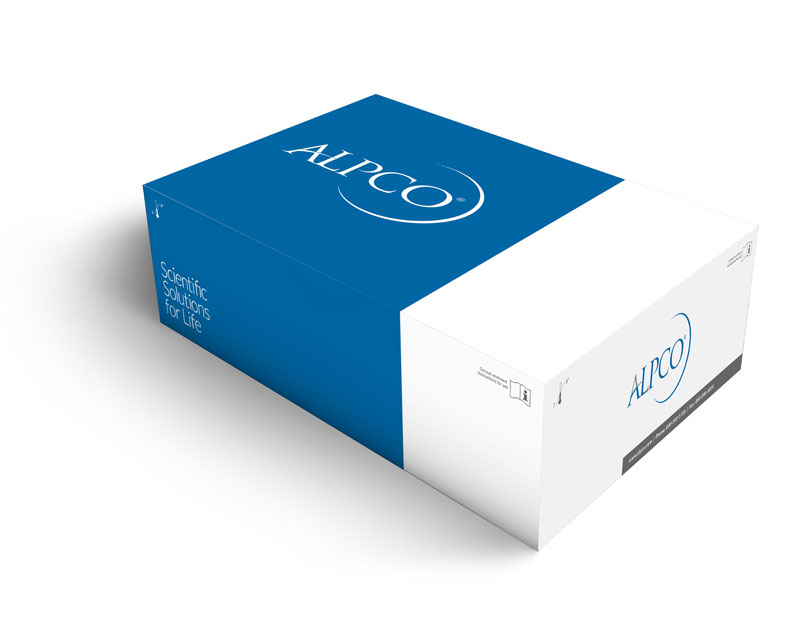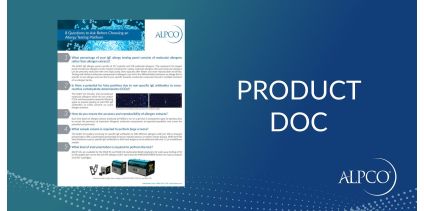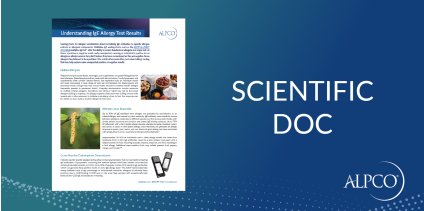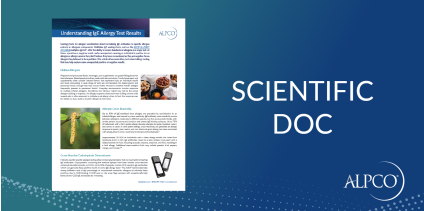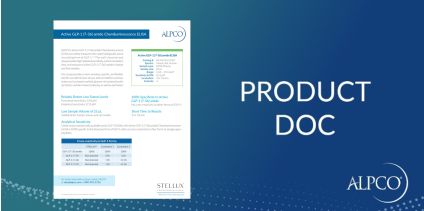Epidermal Growth Factor Receptor ELISA (EGF Receptor ELISA)
$1,285.00
Catalog
30-7110
Epidermal Growth Factor Receptor ELISA (EGF Receptor ELISA)
Species
Human
Regulatory Status
Research Use Only. Not for Use in Diagnostic Procedures.
Product Distribution
Available in North America Only
Range
3 - 24 fmol/mL
Sensitivity
0.4 fmol/mL
Sizes
96 Wells
Sample Types
Tissue Culture
Inc Time Overnight
Yes
Inc Time See Protocol
No
Sample Size
200
Detection
Colorimetric
Polyclonal growth factors e.g. the epidermal growth factor (EGF) have been recognized as important determinants in the regulation of cellular proliferation and differentiation as shown in cell culture. EGF mediates its effects through receptors. The EGF-receptor (EGF-R) is a glycoprotein of 170,000 Dalton. It consists of an extra cellular domain for EGF binding, a transmembrane domain for signal transduction and an intracellular domain with tyrosine-kinase activity. Binding of EGF leads to a Ca2+ release by activation of Calmodulindependent enzymes.
Overexpression or amplification of EGF-R in breast cancer is associated with autonomous tumor growth and poor clinical prognosis.
The most widely used method of receptor identification has been a radioligand - assay with 125I-labelled EGF. The advantage of the radioligand assay is the measurement of native receptor. On the other hand, this test system is combined with a lot of disadvantages (e.g. great amount of tumor material, radioactivity, poor reproducibility, time consuming calculation). In the offered test system EGF-R is determined by specific antibodies. The Epidermal Growth Factor Receptor ELISA (EGF Receptor ELISA) shows good reproducibility, small sample volume, and is easy to calculate. The sensitivity for the Epidermal Growth Factor Receptor ELISA (EGF Receptor ELISA) technique is 0.4 fMol/ml.
The Epidermal Growth Factor Receptor ELISA (EGF Receptor ELISA) is for Research Use Only.
For more information on the Epidermal Growth Factor Receptor ELISA (EGF Receptor ELISA), call 800-592-5726.
Overexpression or amplification of EGF-R in breast cancer is associated with autonomous tumor growth and poor clinical prognosis.
The most widely used method of receptor identification has been a radioligand - assay with 125I-labelled EGF. The advantage of the radioligand assay is the measurement of native receptor. On the other hand, this test system is combined with a lot of disadvantages (e.g. great amount of tumor material, radioactivity, poor reproducibility, time consuming calculation). In the offered test system EGF-R is determined by specific antibodies. The Epidermal Growth Factor Receptor ELISA (EGF Receptor ELISA) shows good reproducibility, small sample volume, and is easy to calculate. The sensitivity for the Epidermal Growth Factor Receptor ELISA (EGF Receptor ELISA) technique is 0.4 fMol/ml.
The Epidermal Growth Factor Receptor ELISA (EGF Receptor ELISA) is for Research Use Only.
For more information on the Epidermal Growth Factor Receptor ELISA (EGF Receptor ELISA), call 800-592-5726.

